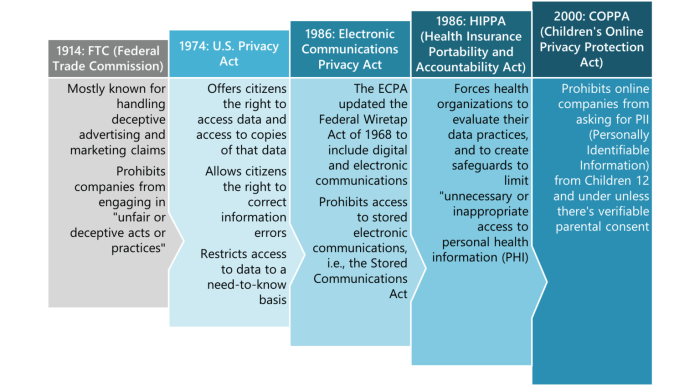Embark on a journey through the intricate landscape of Understanding Securities Law, where the complexities of financial regulations unfold before your eyes. Delve into the nuances of securities laws and discover the fundamental principles that govern the world of investments.
Explore the various types of securities, the regulations surrounding securities offerings, and the critical role of the SEC in upholding market integrity. As we navigate through the realm of securities law, you’ll gain a deeper understanding of how these regulations safeguard investors and maintain the stability of financial markets.
Introduction to Securities Law
Securities law refers to the set of regulations and rules that govern the issuance and trading of securities in financial markets. The primary purpose of securities law is to protect investors by ensuring transparency, fairness, and integrity in the market.
It aims to maintain confidence in the financial system and prevent fraudulent activities that could harm investors and the overall market stability.
Importance of Securities Regulations
Securities regulations play a crucial role in maintaining the efficiency and credibility of financial markets. By imposing disclosure requirements, preventing insider trading, and regulating the conduct of market participants, securities laws help create a level playing field for all investors.
These regulations also promote market liquidity and facilitate capital formation by providing a framework for companies to raise capital through the issuance of securities.
Key Objectives of Securities Laws
- Protecting Investors: Securities laws aim to safeguard the interests of investors by requiring companies to disclose relevant information about their financial condition, operations, and risks. This transparency helps investors make informed decisions and reduces the likelihood of fraud or manipulation.
- Ensuring Market Integrity: Securities regulations are designed to maintain the integrity of the market by prohibiting practices such as insider trading, market manipulation, and fraudulent activities. By enforcing rules that promote fairness and transparency, securities laws contribute to the overall trust and efficiency of the financial system.
- Promoting Capital Formation: Another key objective of securities laws is to facilitate capital formation by providing companies with access to funding through the issuance of securities. By establishing a regulatory framework that instills confidence in investors, securities regulations encourage investment in new ventures and support economic growth.
Types of Securities
Securities are financial instruments that represent ownership or debt obligations. They are categorized into various types based on their characteristics and features.
Stocks
Stocks, also known as equities, represent ownership in a company. When an individual purchases a stock, they become a shareholder and acquire a stake in the company. Shareholders have the right to vote on company decisions and may receive dividends if the company distributes profits.
Bonds
Bonds are debt securities issued by governments, municipalities, or corporations to raise capital. When an investor buys a bond, they are essentially loaning money to the issuer in exchange for periodic interest payments and the return of the principal amount at maturity.
Bonds are considered less risky than stocks but offer lower potential returns.
Derivatives
Derivatives are financial contracts whose value is derived from an underlying asset, such as stocks, bonds, commodities, or currencies. Examples of derivatives include options, futures, and swaps. Derivatives are often used for hedging risks, speculation, or investment purposes.
Debt Securities vs. Equity Securities
Debt securities, such as bonds, represent loans made by investors to issuers, who are obligated to repay the principal amount along with interest. On the other hand, equity securities, like stocks, represent ownership in a company and provide shareholders with voting rights and potential dividends.
Debt securities have a fixed maturity date, while equity securities have no maturity date.
Marketability and Risk Classification
Securities can also be classified based on their marketability and risk profile. Marketable securities are easily tradable in the secondary market, such as stocks and bonds traded on stock exchanges. Non-marketable securities, like private equity investments, are not easily bought or sold.
In terms of risk, securities can be categorized as high-risk (e.g., penny stocks, junk bonds) or low-risk (e.g., blue-chip stocks, government bonds) based on their potential returns and volatility.
Regulation of Securities Offerings
In the world of securities law, the process of registering securities offerings with regulatory authorities is a crucial step to ensure transparency and investor protection. This process involves strict requirements for disclosure and transparency to provide potential investors with all the necessary information to make informed decisions.
Requirements for Disclosure and Transparency
- Companies looking to offer securities to the public must comply with strict disclosure requirements set by regulatory authorities.
- These requirements typically include providing detailed financial information, business operations, risks involved, and management backgrounds to potential investors.
- Transparency is key in securities offerings to prevent fraud and misrepresentation, ensuring that investors have access to all relevant information.
Role of Prospectuses in Securities Offerings
- Prospectuses play a vital role in securities offerings by providing detailed information about the company, its operations, financial health, and the securities being offered.
- Investors rely on prospectuses to make informed decisions, as they contain important information such as risk factors, financial statements, and legal disclosures.
- Regulatory authorities require companies to file prospectuses as part of the registration process, ensuring that investors have access to accurate and comprehensive information before investing.
Insider Trading and Market Manipulation
Insider trading refers to the buying or selling of a security by someone who has access to material, non-public information about the security. This practice is illegal as it undermines the integrity of the securities markets and gives unfair advantage to those with privileged information.
Implications of Insider Trading
- Distorts the level playing field for all investors
- Erodes investor confidence in the fairness of the market
- Can lead to market manipulation and fraud
Prohibitions and Penalties
Insider trading is strictly prohibited by securities laws and regulations.
- Penalties include hefty fines, imprisonment, and civil lawsuits
- Individuals involved may face permanent bans from trading securities
- Companies could also face sanctions for failing to prevent insider trading within their organization
Market Manipulation
Market manipulation involves artificially inflating or deflating the price of a security, creating a false impression of market activity. This practice can have detrimental effects on the integrity of securities markets by distorting prices and misleading investors.
Impact of Market Manipulation
- Undermines market efficiency and fairness
- Leads to misallocation of resources and capital
- Can trigger market volatility and instability
Securities Exchange Commission (SEC)
The Securities Exchange Commission (SEC) is a regulatory body established to enforce federal securities laws and regulate the securities industry in the United States. Its primary role is to protect investors, maintain fair, orderly, and efficient markets, and facilitate capital formation.
Role of the SEC
The SEC plays a crucial role in enforcing securities laws by overseeing key participants in the securities markets, such as securities exchanges, brokers, dealers, investment advisors, and mutual funds. It ensures compliance with regulations to prevent fraudulent activities and market manipulation.
- The SEC reviews and approves registration statements for securities offerings to ensure full disclosure of relevant information to investors.
- It investigates and takes enforcement actions against individuals or entities engaged in insider trading, fraud, or other violations of securities laws.
- The SEC also sets accounting and auditing standards to promote transparency and accuracy in financial reporting.
Powers and Responsibilities of the SEC
The SEC has the authority to establish rules and regulations governing the securities industry to protect investors and maintain market integrity. It can bring civil enforcement actions, impose fines, and seek injunctive relief against violators of securities laws.
The SEC has the power to suspend trading in a security, revoke a company’s registration, and bar individuals from participating in the securities industry.
- The SEC conducts inspections and examinations of securities firms to ensure compliance with regulations and protect investors from misconduct.
- It oversees the operations of securities exchanges to ensure fair and orderly trading practices and prevent market manipulation.
- The SEC promotes investor education and provides resources to help investors make informed decisions about their investments.
Protection of Investors and Market Integrity
By enforcing securities laws and regulations, the SEC aims to protect investors from fraud, manipulation, and other abuses in the securities markets. It also works to maintain fair and efficient markets that foster capital formation and economic growth.
- The SEC monitors market activities to detect and deter misconduct, such as insider trading and market manipulation, to safeguard investors’ interests.
- It enforces disclosure requirements to ensure that investors have access to accurate and timely information about securities they are considering for investment.
- The SEC collaborates with other regulatory agencies and law enforcement to investigate and prosecute securities law violations effectively.
Securities Fraud
Securities fraud refers to deceptive practices in the securities market that manipulate investors or misrepresent information to gain an unfair advantage. This unethical behavior undermines the integrity of the financial system and erodes investor confidence.
Types of Securities Fraud
- False or misleading information: This involves spreading false information about a company’s financial health or prospects to artificially inflate stock prices.
- Ponzi schemes: Scammers promise high returns to investors, using funds from new investors to pay returns to earlier investors, without any legitimate investment activity.
- Insider trading: Trading securities based on non-public material information, which gives the trader an unfair advantage over other market participants.
- Churning: Excessive buying and selling of securities by a broker to generate commissions, without considering the investor’s best interests.
Consequences of Securities Fraud
- Loss of investor trust: Securities fraud undermines investor confidence in the market, leading to decreased participation and liquidity.
- Financial losses: Investors who fall victim to fraudulent schemes may suffer significant financial losses, jeopardizing their savings and investments.
- Litigation and regulatory penalties: Perpetrators of securities fraud can face civil lawsuits, criminal charges, and regulatory sanctions, resulting in fines, imprisonment, or other legal consequences.
Regulatory Measures to Prevent and Detect Securities Fraud
- Securities and Exchange Commission (SEC): The SEC enforces federal securities laws and regulations, conducts investigations, and brings enforcement actions against individuals and entities engaged in securities fraud.
- Internal controls and audits: Companies are required to maintain effective internal controls and undergo regular audits to detect and prevent fraud within their organizations.
- Whistleblower programs: Regulatory bodies offer programs to incentivize individuals to report securities fraud anonymously, providing valuable information to authorities for investigation.
Corporate Governance and Securities Law
Corporate governance practices play a crucial role in ensuring transparency and accountability within a company, while securities laws provide the regulatory framework to maintain integrity in the financial markets.
The Relationship Between Corporate Governance and Securities Regulations
Corporate governance practices and securities regulations are intertwined, as they both aim to promote fairness, transparency, and accountability in the corporate sector. Securities laws dictate how companies disclose information to investors, ensuring that material information is made available to the public in a timely manner.
This helps in preventing fraud and market manipulation, ultimately safeguarding the interests of investors.
Influence of Securities Laws on Corporate Decision-Making and Transparency
Securities laws have a significant impact on corporate decision-making processes. Companies must comply with regulations related to financial reporting, disclosure of material information, and insider trading to maintain transparency and accountability. Failure to adhere to these laws can result in severe penalties and legal repercussions, affecting the reputation and financial stability of the company.
Role of Corporate Boards in Ensuring Compliance with Securities Laws
Corporate boards play a crucial role in overseeing and ensuring compliance with securities laws. Board members are responsible for implementing internal controls, monitoring financial reporting practices, and assessing the effectiveness of risk management systems. By actively engaging in governance practices and staying informed about regulatory changes, corporate boards can uphold the integrity of the company and protect the interests of shareholders.
International Securities Regulations
International securities regulations play a crucial role in ensuring the integrity and stability of global financial markets. As companies operate across borders and investors trade securities on a global scale, harmonized regulations are essential to maintain transparency and protect stakeholders.
Comparison of Securities Regulations
Securities regulations vary significantly from country to country due to differences in legal systems, market structures, and regulatory frameworks. For example, the United States has stringent regulations enforced by the Securities and Exchange Commission (SEC), while some emerging markets may have less developed regulatory bodies.
Challenges of Enforcing Laws Across Borders
- Legal Jurisdiction: Determining which country’s laws apply in cases involving multiple jurisdictions can be complex and may lead to challenges in enforcement.
- Information Sharing: Limited cooperation and information sharing between regulatory authorities in different countries can hinder efforts to investigate and prosecute cross-border securities violations.
- Cultural Differences: Varied cultural norms and business practices can impact the interpretation and enforcement of securities laws across international borders.
Impact of Globalization on Regulations
The process of globalization has increased the interconnectedness of financial markets, resulting in the need for enhanced collaboration among regulators globally. As capital flows freely across borders, regulatory harmonization and cooperation are essential to address emerging risks and ensure investor protection.
Investor Protection Measures

Investor protection measures play a crucial role in maintaining the integrity and stability of the securities market. These measures are designed to safeguard the interests of investors, promote transparency, and ensure fair and equitable treatment for all market participants.
Regulatory Oversight
Regulatory bodies such as the Securities and Exchange Commission (SEC) enforce securities laws to protect investors from fraudulent activities and market manipulation. These regulations govern the issuance, trading, and disclosure of securities to maintain market integrity.
- Regulation of Securities Offerings: Securities laws require companies to provide accurate and timely information to investors during the issuance of securities, reducing the risk of misleading disclosures.
- Insider Trading Regulations: Prohibitions on insider trading prevent individuals from using non-public information for personal gain, ensuring a level playing field for all investors.
Investor Education and Awareness
Empowering investors with knowledge about the securities market and investment risks is essential for their protection. Educational initiatives and resources help investors make informed decisions and mitigate potential losses.
“An educated investor is a protected investor.”
Dispute Resolution Mechanisms
In the event of disputes related to securities investments, investors have access to various mechanisms for resolution, such as arbitration, mediation, or legal action. These avenues provide investors with recourse in case of fraud, misrepresentation, or other violations of securities laws.
- Arbitration: Investors can seek resolution through arbitration proceedings, which offer a faster and more cost-effective alternative to traditional litigation.
- Mediation: Mediation allows parties to negotiate a settlement with the assistance of a neutral third party, avoiding the need for a formal legal process.
Market Surveillance and Enforcement
Continuous monitoring of the securities market and proactive enforcement of regulations are essential for maintaining investor confidence. Surveillance programs detect suspicious activities, such as market manipulation or insider trading, and take swift action to protect investors’ interests.
- Market Manipulation Detection: Surveillance systems track trading patterns and volume to identify potential instances of market manipulation, safeguarding market integrity.
- Enforcement Actions: Regulators take enforcement actions against individuals or entities that violate securities laws, sending a deterrent message to would-be wrongdoers.
Emerging Trends in Securities Law
In the ever-evolving landscape of securities law, staying abreast of emerging trends is crucial for both regulators and market participants. The following trends highlight the current developments shaping the securities regulations and enforcement practices.
Impact of Technological Advancements on Securities Law Enforcement
The advent of technology has transformed the way securities transactions are conducted, giving rise to new challenges and opportunities. With the increasing prevalence of high-frequency trading and algorithmic trading, regulators are faced with the task of ensuring market integrity and preventing manipulative practices.
The use of big data analytics and artificial intelligence has also enhanced surveillance capabilities, enabling regulators to detect suspicious activities more effectively.
Challenges and Opportunities in Evolving Securities Markets
As securities markets continue to globalize and become interconnected, regulators are confronted with the challenge of harmonizing regulations across jurisdictions to address cross-border issues. The rise of digital assets and cryptocurrencies has introduced new asset classes that require innovative regulatory approaches to protect investors and maintain market stability.
At the same time, advancements in blockchain technology offer opportunities for more efficient and transparent securities trading and settlement processes.
Epilogue
In conclusion, Understanding Securities Law serves as a vital cornerstone in the realm of finance, shaping the way investments are made and ensuring transparency in market transactions. By unraveling the complexities of securities laws, we empower investors to make informed decisions and foster trust in the financial ecosystem.
As you reflect on the insights gained from this exploration, remember that knowledge of securities law is not just a tool for compliance but a key to unlocking the potential of the global economy.

